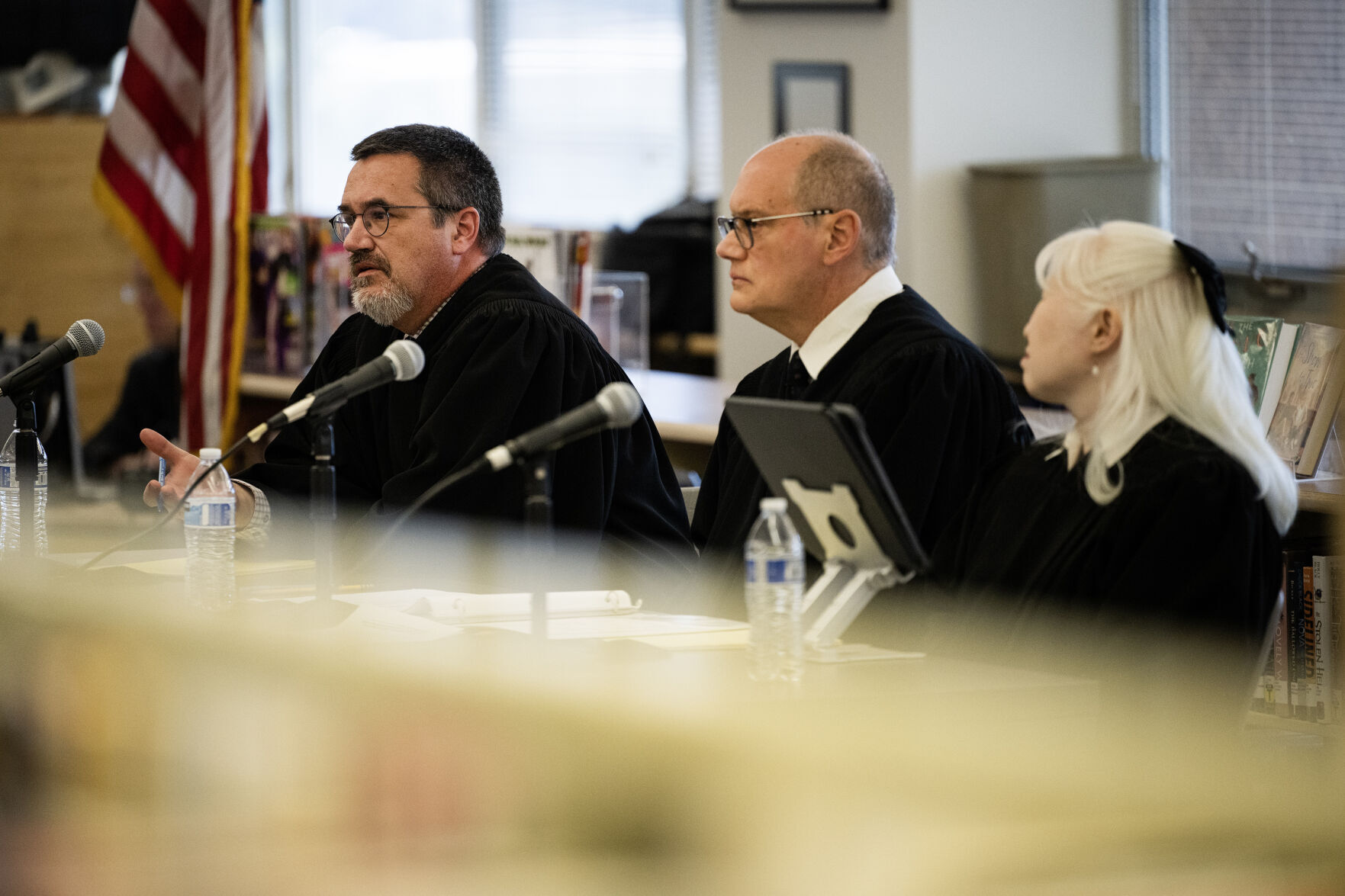Divided appeals court finds no misconduct from Denver prosecutor’s inflammatory argument

While the Colorado Supreme Court has established that prosecutors may not characterize a witness’s testimony as a “lie,” the state’s second-highest court has decided, by 2-1, a Denver prosecutor did not cross the line by repeatedly using a synonym for “lie.”
Jurors convicted Rigoberto E. Fernandez in 2015 for stabbing a man at Montbello Recreation Center. Fernandez did not dispute the stabbing, but claimed he was acting in self-defense after a group of the victim’s associates attacked him. In closing arguments, the prosecutor told jurors a half dozen times how Fernandez “fabricated” that story.
A three-judge panel for the Court of Appeals noted the Supreme Court has not extended its prohibition on the word “lie” to synonyms of it. In context, the prosecutor’s comments were “anchored in the evidence” showing Fernandez’s testimony was completely different from what the jurors heard elsewhere.
The disputed statements “were embedded in the prosecution’s discussion of specific contradictions in the testimony of Fernandez and the other eyewitnesses and its argument regarding how the jury should evaluate those contradictions,” wrote Judge David Furman for himself and Judge Sueanna P. Johnson.
Judge Ted C. Tow III indicated he would have reversed Fernandez’s conviction and granted a new trial. To Tow, the clear message the prosecutor sent to jurors was that the defendant was lying.
“I believe the prosecutor’s closing argument was glaringly and tremendously improper and that this flagrant prosecutorial misconduct so undermined the fundamental fairness of the trial as to cast serious doubt on the reliability of the judgment of conviction,” he wrote.
Case: People v. Fernandez
Decided: September 14, 2023
Jurisdiction: Denver
Ruling: 2-1
Judges: David Furman (author)
Sueanna P. Johnson
Ted C. Tow III (dissent)
Background: Domingo-Gomez v. People (2006)
Word choice
The state Supreme Court has repeatedly noted that prosecutors cannot call someone a liar “or any of its other forms,” as it is a violation of the right to a fair trial. In addition to being an “inflammatory term,” the court has reasoned that a prosecutor is improperly opining on the truthfulness of the witness by telling the jury they are lying.
In 2006, the justices issued a decision involving a prosecutor who initially called the defendant a liar. But when the trial judge intervened, the prosecutor modified her wording to say the defendant “did not tell you the truth.” The Supreme Court found the rephrasing acceptable, noting it did not have the “same degree of rhetorical power” as the word “lie.”
“While we have repeatedly held that advocates may point to evidence that undercuts a witness’ testimony, we have never dictated the exact language counsel must use. We refuse to do so now,” wrote Justice Alex J. Martinez.
Since then, the Court of Appeals has occasionally confronted the question of how far prosecutors may go in implying a witness is lying, but without using the word outright.
During oral arguments in a bank robbery case earlier this year, a three-judge appellate panel considered whether a prosecutor crossed the line by calling a defendant’s testimony “pure fiction,” “manufactured” and “just not true.”
“Part of the problem with the word ‘liar’ is it suggests a personal opinion. But also, ‘liar’ is a particularly inflammatory word in Colorado law,” observed Judge John Daniel Dailey. “Do these other words – ‘fiction,’ ‘story,’ things like that – are they as inflammatory on a spectrum?”
“When you use all those terms back to back to back, the message is the same: he’s lying,” replied public defender Lynn Noesner.
The Colorado Attorney General’s Office believed that, while synonyms for “lie” could be “vivid” and “strong,” they were not a problem as long as they were linked to the evidence in the case. Although the appellate panel ultimately reversed the defendant’s convictions on different grounds, the judges suggested the question about prosecutors’ language was a serious one.
“It’s kind of like doing everything you can without going over this imaginary line,” commented Judge Christina F. Gomez. “If the line is ‘I don’t say lie, but I say something else like 20 times,’ I don’t know.”
Misconduct or fair game?
In Fernandez’s case out of Denver, the prosecutor repeatedly told jurors Fernandez’s account of being attacked first was “fabricated” because it differed from every other witness’s testimony. The Court of Appeals did not identify the prosecutor, but the Denver District Attorney’s Office said that Carlos Rueda was the one who made the comments.
Because the defense did not object at the time, the Court of Appeals reviewed whether the trial judge should have intervened because Rueda’s statements were obviously inappropriate. The majority determined the answer was no.
“Indeed, in context, each of these comments were anchored in the evidence and jury instructions and came while the prosecution ‘pointed to inconsistencies in the testimony’ of Fernandez as compared to the five other eyewitnesses,” wrote Furman in the Sept. 14 opinion.
Tow, writing in dissent, did not believe Rueda’s comments were justified. Instead, they conveyed that the prosecution believed the other witnesses were telling the truth and Fernandez was the liar. Rueda “greatly overstepped the line” by injecting his own beliefs about the defendant’s credibility, argued Tow.
“In sum, misconduct pervaded the entirety of the prosecutor’s closing argument,” he wrote.
A spokesperson for the Boulder County District Attorney’s Office, where Rueda is now a senior prosecutor, said Rueda was unavailable for comment. Rueda’s boss, District Attorney Michael Dougherty, said he agreed with the majority’s ruling and called Rueda an “outstanding prosecutor.”
Doughterty added that it is permissible for prosecutors to comment in closing on evidence that addresses the credibility of witness testimony, and that if the Supreme Court decides to extend the probhition for synonyms of “lie,” prosecutors will follow the rule.
“Absent such guidance, I think trial attorneys do their best to address credibility in a direct manner with jurors,” he said. “As trial attorneys, we know that jurors in Colorado tend to be smart people. The law requires jurors to determine the credibility of every witness, which is why it is always addressed in closing arguments.”
The case is People v. Fernandez.














